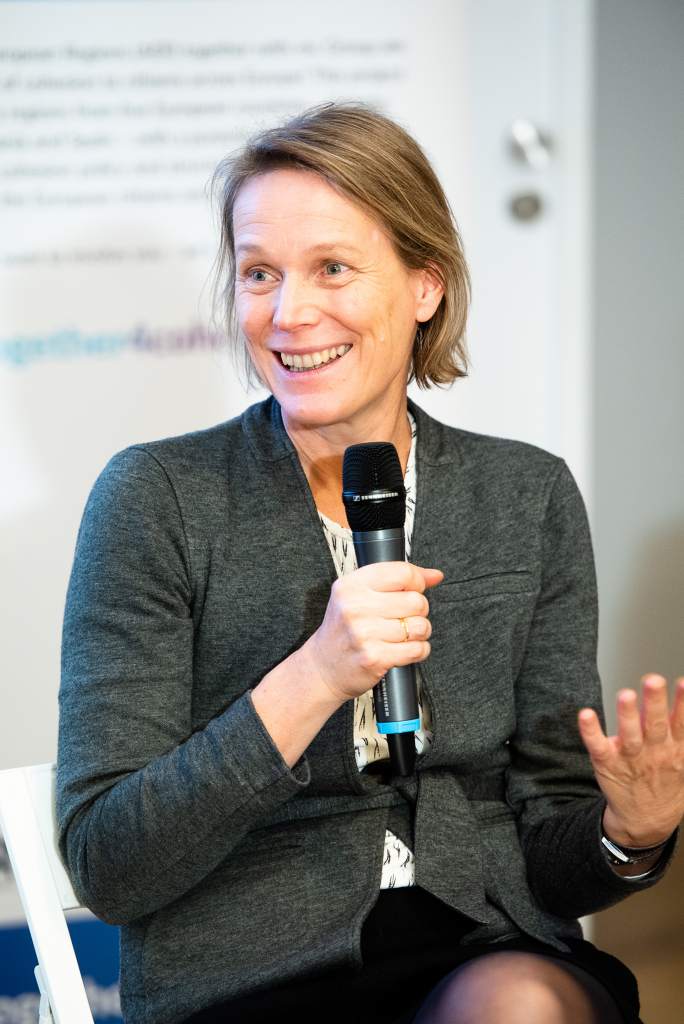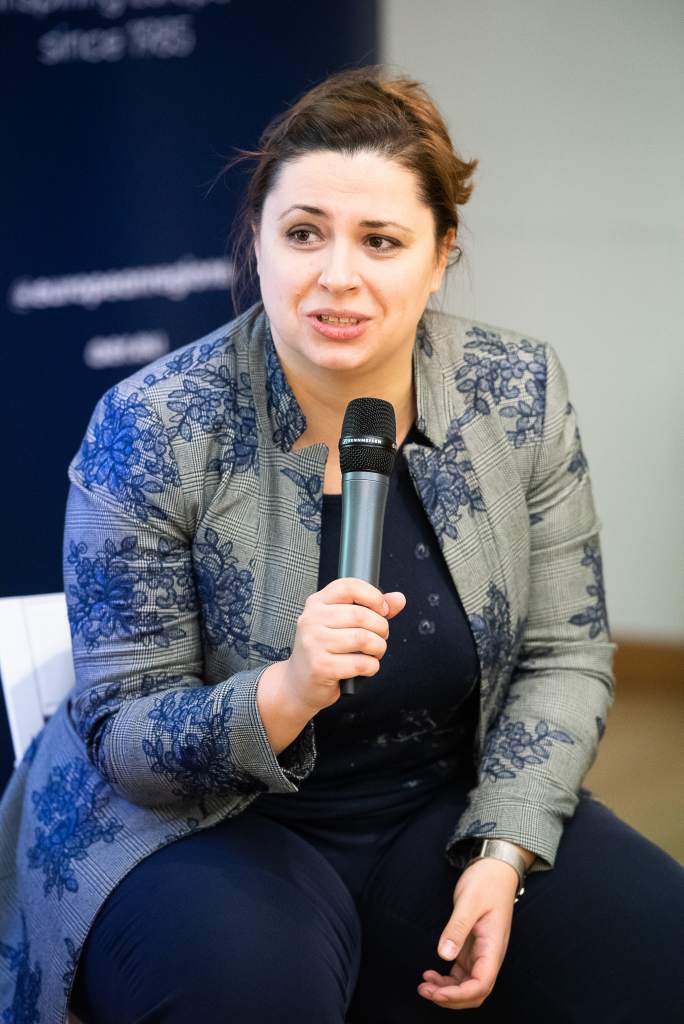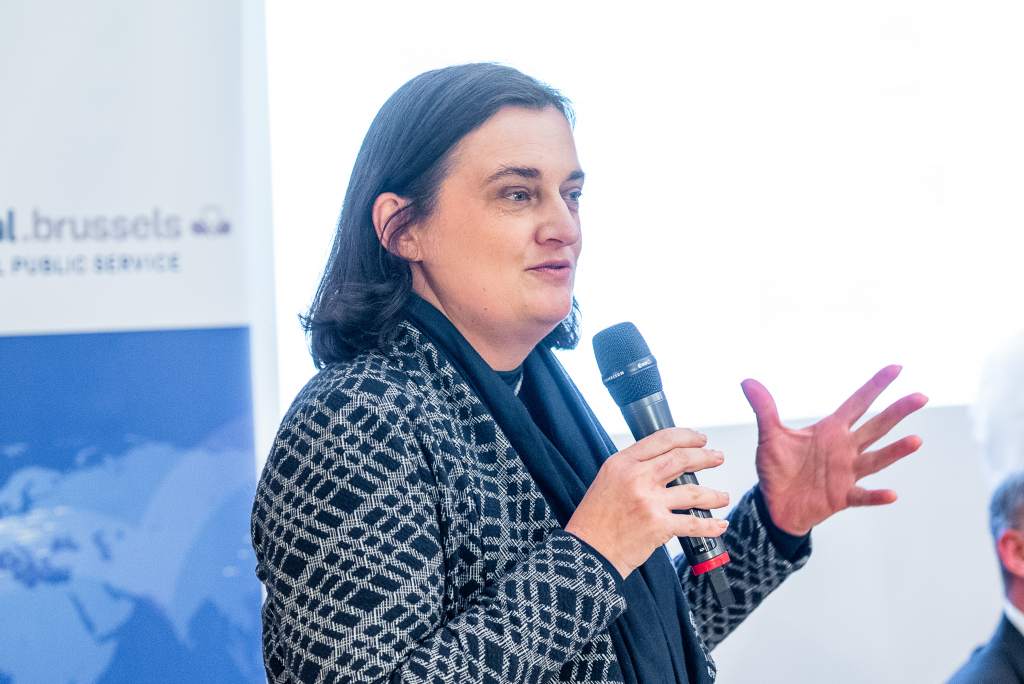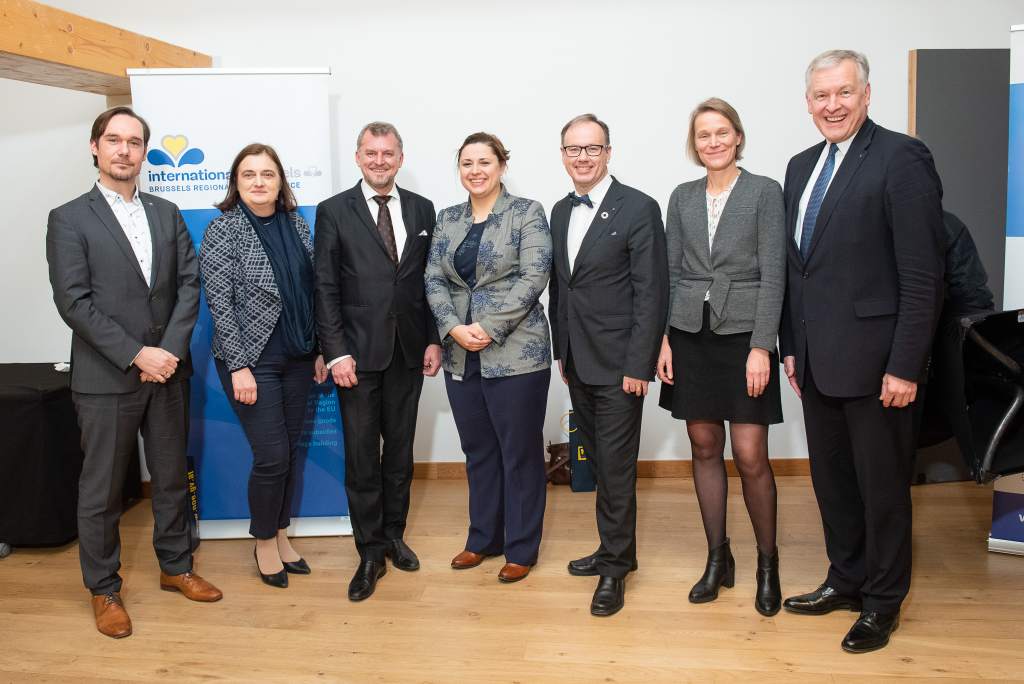 Share this!
Share this!During the AER Bureau Meeting which took place in Brussels on 5 December 2019, the AER Taskforce on Digitalisation hosted a panel debate on Regions in the Digital Era at the BIP – the House of the Capital Region.
The event was organised under the leadership of the Taskforce Chair, the Region of Lower Austria.
The shift towards an information society has profoundly changed our way of living and thinking. Information society, with the help of ICT, offers great opportunities to local and regional authorities to enhance the democratic participation of citizens and increasing the quality and efficiency of public services and local administration.
Likewise, regions plan and pursue their own digital strategies in order to enhance economic growth and to promote their citizens’ wellbeing.
During the debate, experts from European Institutions, academia and the private sector had the opportunity to reflect on the challenges that regions face to foster an ecosystem that is conducive to the uptake and usage of digital applications to benefit its citizens. Concurrently, debate attendees seized the opportunity to pose questions to the panel to learn how to better harness digitalization and empower citizens in their regions.
Kerstin Koren from the Lower Austrian Regional Government moderated the debate, which was opened by Martin Eichtinger – Minister of Housing, Labour, and International Relations of the Government of Lower Austria, Chair of the AER Task Force on Digitalisation
Mr. Eichtinger showcased the work that Lower Austria is doing in promoting digitalisation by establishing different projects and initiatives, such as Digi Contest, a competition for employees to come up with innovative project ideas, alongside other citizens’ participation programmes, which can be used as examples by other European regions.
Anne-Marie Sassen, Deputy Head of Unit at the Directorate-General for Communications Networks, Content and Technology, European Commission gave insights into the Commission’s Digital Europe programme with a detailed presentation.
You can revisit the presentation by accessing the slides here.
She stated that there are some European organisations that have already implemented new technologies, but not all of them are making the most of things when it comes to digital competences. The same applies to regions, are implementing a lot of technologies, whereas others are not. With the Digital Europe Programme, the European Commission hopes to encourage European public services, companies and citizens to be more aware of the advantages of digitalisation and to enable these actors to seize the benefits that can come from digital technologies.
Ms. Koren subsequently asked the audience to feedback on the first thing that comes to mind when we discuss digitalisation.
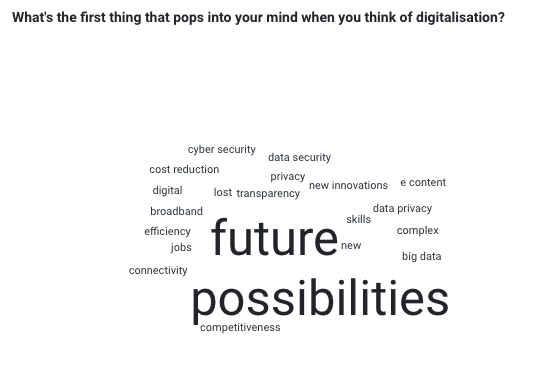
Thomas J. Lampoltshammer – Deputy Head of Center for E-Governance, Danube University Krems reflected on the outcomes of this audience poll and the situation of regions & companies active in the digital era, stating
“We have different challenges and we need to find a way to put together the main pillars in order to find solutions.” He advised that we need to bring the public and private sector together to cooperate on the digital transition and he stressed in particular that given that each region has its own profile and background which affects the development of digital literacy, there is a need to develop a programme for providing solutions to the problems, to make people aware of the digital era and to encourage them to get on board in the ways that work best for them.
Stefan Moritz, Managing Director of European Entrepreneurs (CEA-PME) gave the perspectives of SMEs and stressed that SMEs need to be more digitally literate. To do this we need to share good practices with other countries, and to cooperate. For regions and EU Member States, he advised that E-governance will be a pull factor for digital companies, as well as for citizens so it is crucial that public services keep up the pace.
Ludmilla Georgieva, Public Policy and Governmental Relations Manager, Google, shared her views as somebody who has previously worked in the public sector before joining the tech giant. She underscored the opportunities that digitalisation offers to governments, regions and citizens. She gave the example of the cloud as a means to help to reduce costs, to reduce time, and to improve overall quality of life.
She reiterated that digitalisation is an opportunity for regions to foster regional development, the grow local economies and keep citizens in their region by providing digital infrastructure and promoting connectivity through digital technologies.
